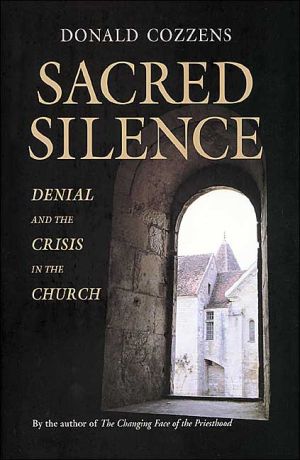All books / Book
Sacred Silence: Denial and the Crisis in the Church

| Full title: | Sacred Silence: Denial and the Crisis in the Church |
|---|---|
| ISBN: | 9780814627792 |
| ISBN 10: | 081462779X |
| Authors: | |
| Publisher: | Liturgical Press |
| Edition: | 1st |
| Num. pages: | 208 |
| Binding: | Hardcover |
| Language: | en |
| Published on: | 2002 |
Read the reviews and/or buy it on Amazon.com
Synopsis
Bearer of the Word and champion of the oppressed, the church nevertheless displays a puzzling propensity to denial and silence when faced with realities that threaten her centuries-old structure. In Sacred Silence, Donald Cozzens probes the conscious and unconscious dynamics that sustain the church's culture of silence and points the church in the direction of candor and honest dialogue. What are we afraid of? The question was put to me by a U.S. archbishop. It was, of course, rhetorical. He knew we Christians really have nothing to be afraid of if we place our faith and hope in the gospel, in the promise of Jesus Christ to be with his disciples to the end of time. On another level, the question is anything but rhetorical. There appears to be a great deal that many Christians, and especially church leaders, are quite literally afraid of. This book is an attempt to answer the question, What are we afraid of? and to address the deeper questions, Why are we afraid? Why is the institutional church so defensive? Why is it so controlling? How is it that a church that is the bearer of the Word and the champion of the oppressed can maintain unholy silences while denying that obvious pastoral and ecclesial problems, indeed crises, even exist? In the present climate the laity sense what many church authorities are reluctant to acknowledge -- that the present troubles go well beyond the priest abuse debacle. Underneath the mushrooming scandals and the painful polarization shaking the confidence of the faithful, a church stands at the brink of destabilization. How could it be otherwise? A still feudal church struggles to meet the modern world as the modern world merges with post-modern currents of thought that threaten religious belief as we know it. We may not have reason to be afraid, but we have abundant reason to be anxious. And as history makes clear, where anxiety dwells, imagination shrivels, denial thrives, and control becomes obsessive. An anxious church